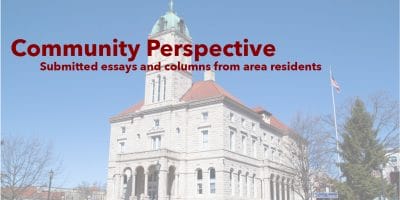
By Haley Thomas, contributor
Beginning in the 2024-25 school year, Harrisonburg City Public Schools will use a science-based approach to improve students’ literacy with the help of teachers, families and reading specialists.
The Virginia Literacy Act, which the General Assembly passed in 2022, requires each school division to create an evidence-based literacy curriculum that loops families, teachers and reading specialists into students’ individual literacy learning experiences. The law requires supplemental instruction and additional intervention for students – from kindergarten through eighth grade – who do not meet specific literacy benchmarks. It also entitles families to access to online resources that support literacy development at home.
A planning committee unveiled its vision for the city school system’s plan during Tuesday’s school board meeting. The committee included reading specialists, as well as Superintendent Michael Richards, Chief Academic Officer Joy Blosser and K-5 Literacy Coordinator Tanya Butler.
Butler said addressing literacy requires “a layered approach.” She said HCPS already had many of the tools – an “evidence-based curriculum” which has already been approved by the state, as well as at least two reading specialists per school.
Butler said the new plan will require several changes.
“It’s going to be a change, and change is hard,” Butler said. “But it’s for the right reasons when we know that it’s for our students and helping them become the best readers they can.”
One part will require teachers to participate in professional development and training sessions that implement evidence-based literacy instruction. Butler said she doesn’t want this to feel like “just another thing on teachers’ plates” and that they will be provided with all necessary tools.
Another change will be an updated literacy screener, which is a test that identifies students who could be at risk of developing reading difficulties. That screening will sort students into “levels of risk.” If a student is deemed as high risk, the school district is responsible for creating a reading plan that outlines the needs of that student.
“[Reading] plans take the good work that’s already been happening…and use that to inform instruction and put it into a more goal-oriented format, based on what the screener tells us,” Butler said. She added that HCPS hasn’t updated its literacy screener in over 20 years.
Reading plans, Blosser said, will come from a collaboration among teachers, reading specialists and families. The law requires schools to give families access to online resources to support literacy development at home, and to allow them to participate in the development of their child’s reading plan.
Butler said at-home literacy development is not limited to any one language and that all families can support their students through oral language.
“We never want our families to feel that their contributions aren’t valuable,” Butler said. “We don’t want our families ever to feel like they have to speak English, or provide English support. We want to value the languages that are spoken at home and show that they can also contribute to literacy development.”
School board member Emma Phillips said she occasionally struggles to find specific information on the district’s school websites, so having a “unified front” is needed to push these resources out to families.
Blosser said she agreed and wants to think of a creative way to present the information. She said some principals on the literacy planning committee want to create TikTok-style videos for families to watch about at-home literacy activities.
Another Update on School Start Times
Superintendent Michael Richards brought the topic of school start times to Tuesday’s school board meeting once again — but this time, with a request for more time to work with community partners to mitigate issues like childcare and bus transportation.
Many teachers, parents and students spoke out in strong opposition to the proposed new start times because of concerns about childcare, conflicts with students’ after school activities and effects on lower-income families. The school board voted to scrap the new start times in March.
Richards said he’s still dedicated to finding a solution that is grounded in the science of students’ sleep patterns but that he’d need the board to give him and the task force more time to address community-wide problems, such as before and after-school childcare.
Richards said he and the task force would ideally spend about a year working with community partners such as Second Home, Boys and Girls Club, Gus Bus and other childcare facilities to help determine the community’s needs.
“What’s the opportunity cost of doing this?” Board member Deb Fitzgerald asked Richards. “Is it our job to solve this city-wide problem?”
Richards said he feels that working with community partners is always beneficial, and that HCPS won’t be taking on this issue solo.
“We can provide models and support and so forth, but we can’t solve [childcare] on our own,” Richards said. “And so, working with our core partners, over the next, let’s say, several months, we may be able to come to a determination of what the needs are, because we don’t even know exactly what they are yet.”
As for bus transportation, Richards said he recently met with City Manager Ande Banks to discuss working together to recruit drivers for the city and the school buses and is feeling “very optimistic” about growth in drivers.
Richards said one example that HCPS and the city are advertising is that bus drivers are now allowed to enroll their children in the city’s schools even if they don’t live in the district, thanks to a recently updated school board policy.
He added that over the past several weeks, the city has hired five new bus drivers, prompting a round of applause from board members.
“Improving transportation to the point where we have drivers for all our buses, that would help tremendously and fixing that serves us very directly,” Fitzgerald said.
Board member Andy Kohen said he felt like the board needed time to reflect on Richards’ points, and Richards agreed to table the discussion until one of the board’s June meetings. Richards said he wanted to clarify that new start times, if passed by the board, wouldn’t be “dropped” on the district and would instead likely go into effect for the 2026-27 school year.
Thanks for reading The Citizen, which won the Virginia Press Association’s 2022 News Sweepstakes award as the top online news site in Virginia. We’re independent. We’re local. We pay our contributors, and the money you give goes directly to the reporting. No overhead. No printing costs. Just facts, stories and context. We value your support.













